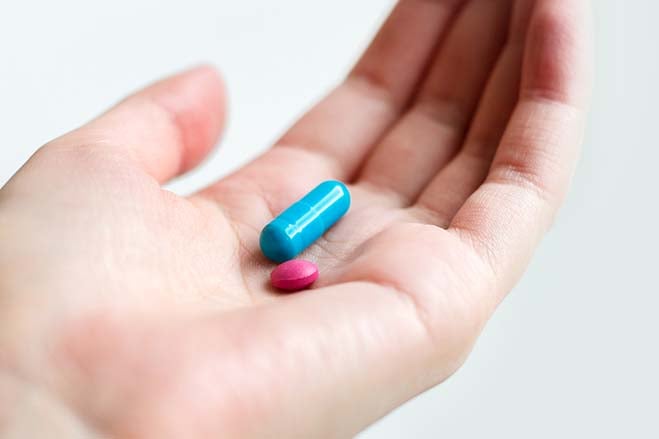.svg)
.svg)
.svg)
.svg)

Sedation in 2026
During sedation, you are placed under a relaxed, semi-conscious state by receiving a sedative drug or inhalation sedation that enables you to be receptive to dental treatment, whilst retaining the ability to respond to your dental team looking after you.
What is Sedation?

What is Sedation?
Sedation differs from anaesthesia in that it puts you in a drowsy, comfortable state, but you remain conscious. Under anaesthesia however, you are fully unconscious and will not be able to respond.
Having dental treatments under sedation would help to put you at ease and handle invasive procedures such as having multiple wisdom teeth removed or having dental implants to replace missing teeth.

Why Should You Have Your Treatment Under Sedation?
Dental Fear
If you are nervous about visiting the dentist (do not worry, up to 80% of people are!) or are fearful about a particular dental procedure (for example, having a dental injection), sedation (on the peak of other relaxation techniques) can help to put your nerves at ease.
Overcome Your Dental Fear
After having completed your dental treatment under sedation successfully, you will have potential in gaining confidence over your dental fears long-term because you will have been semi-conscious yet comfortable throughout the process, therefore you can be educated in feeling confident about any future dental treatment. This is unlike general anaesthesia which does not offer you this since you will be fully asleep.
Invasive Dental Treatment
Sedation can also give you that extra confidence to enhance invasive dental procedures such as multiple wisdom teeth removal, multiple tooth extractions, placement of multiple dental implants or All-on-4, etc.
Reduced Risk of Complications
Having sedation over general anaesthesia carries a lower risk of complications of post-operative side effects such as nausea, headaches, sore throat, etc., and risk of mortality/death – 1 in 3 million for sedation vs 1 in 500,000 for general anaesthesia (although such risk for both methods is considered very low).
Certain Medical Conditions
Sedation is a game-changer for patients with certain medical conditions such as Parkinson’s disease or Cerebral Palsy to receive safer and comfortable dental treatment. It also helps some patients avoid the stress that may come from having dental procedures, which can otherwise aggravate their existing heart disease, high blood pressure, asthma, epilepsy, etc.
What Are the Different Types of Sedation?
Oral Sedation
- Oral sedation involves swallowing a sedative medication in a pill form approximately one hour before your dental treatment to help you relax. This method tends to be used to help patients with extreme needle phobia. It is easy to administer (as you solely have to take a pill), and comes at a cheaper financial cost than IV sedation or a general anaesthesia. However, the sedative effects produced can sometimes be unpredictable, i.e. may affect one patient to a longer, much larger extent than another, therefore it can be difficult to control.
Intravenous (IV) Sedation
- Intravenous (IV) sedation is a predictable form of sedation, which involves delivering a customisable amount of sedative drug through your veins. This method gives your dentist control in ensuring that you are constantly sedated at the correct level throughout your treatment. However, it does require cannulation on your arm (similar to when having a general anaesthesia).
Inhalation Sedation
- For inhalation sedation, Nitrous oxide - also commonly known as “laughing gas”- is a colourless gas with a slight sweet smell that is largely used. It is usually administered with oxygen, and affects your central nervous system, relieving anxiety and mitigating unpleasant feelings of discomfort and pain.
- You remain conscious, and so are still able to hear and respond to your dentist while at the same time being able to tolerate painful procedures. You may feel light-headed as you experience the effects of the gas.
- This method has been proven to be safe - patients are able to breathe on their own and remain in control of all bodily functions.
What Are the Different Types of Sedation?

What Does the Procedure Involve?
Stage 1: Initial Consultation
- Your dentist will take time to explore your concerns and conduct a general health assessment, then discuss your suitable options on how you can receive dental treatment confidently.
- If sedation or general anaesthesia is agreed upon, you will be advised on how long you will need to fast before the procedure, what time to arrive in advance of your procedure, and the post-operative care required (see below).
Stage 3: Post-Operative Care
- After treatment is completed, the sedative effects are likely to linger, so you will need to plan ahead. It is necessary for a reliable family member or friend to accompany you home via appropriate transport and take care of you after.
- You also cannot drive, operate any machinery, drink alcohol, or go to work for the next 24 hours. It will also be normal not to remember full details about your appointment.
Stage 2: Sedation and Dental Treatment
- You receive either on Oral, IV or inhalation sedation. Once you are adequately sedated, your dentist will proceed to complete your dental treatment.
- You will be in a semi-conscious state of mind, but able to feedback and respond to your dental team.
- Your vital signs (such as heart rate, oxygen levels, etc.One-stop) will be closely monitored to ensure that they are at adequate levels.
What Are the Risks Involved?
- Sedation commonly performed to aid certain groups of patients listed above in their acceptance of dental care and is generally considered safe.
- Some patients may experience some post-operative side effects such as stomach problems, nausea, vomiting, headache, sore throat, and cardiac or respiratory issues.
- These effects vary largely between individuals and are mostly minor and temporary. The most severe risk is a 1 in 3 million chance of mortality/death, but this is considered to be extremely low.
What Are the Risks Involved?

Can Everyone Have Sedation?
IV sedation is not suitable for:
- Children;
- Pregnant or breastfeeding women;
- Patients with severe lung disease (e.g. COPD);
- Patients with heart disease (e.g. poorly controlled high blood pressure, severe arrhythmias);
- Patients with impaired liver or kidney function;
- Patients with severe psychiatric disease;
- Patients with learning difficulties;
- Patients with poor or friable veins;
- Allergy to Benzodiazepines.
Can Everyone Have Sedation?

Our Team
View MoreAt Nuffield Dental clinic, your dental needs are cared for by our dedicated team of dentists.
The Nuffield Dental Clinic Network In Singapore
Seletar Dental
Nuffield Dental Seletar
Greenwich V
1 Seletar Road #01-07/08
Singapore 807011

Kovan Dental
Nuffield Dental Kovan
Simon Plaza
2 Kovan Road #01-03
Singapore 548008

Serangoon Dental
Nuffield Dental Serangoon Gardens
Serangoon Garden Estate
57 Serangoon Garden Way
Singapore 555953

Siglap Dental
Nuffield Dental Siglap
The Domain
914 East Coast Road #01-03
Singapore 459108

Bedok Dental
Nuffield Dental Simpang Bedok
East Village
430 Upper Changi Road #01-64
Singapore 487048

Holland Village Dental
Nuffield Dental Holland Village
7 Holland Village Way #03-16
Singapore 275748

Jurong East Dental
Nuffield Dental Westgate
Westgate
3 Gateway Dr #04-32
Singapore 608532

HarbourFront Dental
Nuffield Dental HarbourFront
HarbourFront Centre
1 Maritime Square #02-64A
Singapore 099253

Orchard Dental
Nuffield Dental Jewel
Wheelock Place
501 Orchard Road #05-01
Singapore 238880

Raffles Place Dental
Nuffield Dental Raffles Place
One Raffles Place
1 Raffles Place #05-19
Singapore 048616


Book an Appointment
Fill out the form for any request or questions you have and we will contact you within one working day..


Why Choose Nuffield Dental?
Nuffield Dental is a one-stop, multi-disciplinary dental care centre. At Nuffield, we put you first. We believe in providing personalised service for each patient.
Nuffield Dental is a one-stop, multi-disciplinary dental care centre. Here at Nuffield Dental, we pride ourselves of our personalised oral care for each and every one of our patients. We need to make sure you get all the help you need to make your dental procedures comfortable, accessible and seamless.

Our dentists have specialised in treating nervous patients for 20+ years. We have accredited dental providers who are skilled in the area of dental implant surgery.
Articles
The newest and best lifestyle articles selected by our editorial team.

- 11 Feb 2026
- 2 mins read
- Dental Fillings
Why the Global Phase-Down Is Happening Mercury is listed by the WHO as one of the top ten chemicals of public health concern. In dentistry, the...

- 17 Nov 2025
- 2 mins read
Current scientific evidence does not show a conclusive connection between intact dental amalgam fillings and symptoms such as brain fog, chronic...

- 17 Nov 2025
- 2 mins read
The Minamata Convention on Mercury established 2034 as the global target year to end the use of dental amalgam. While this may seem gradual, the...
.png?width=2223&height=447&name=Background%20(4).png)









.png)

.png)



